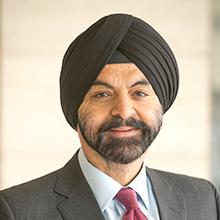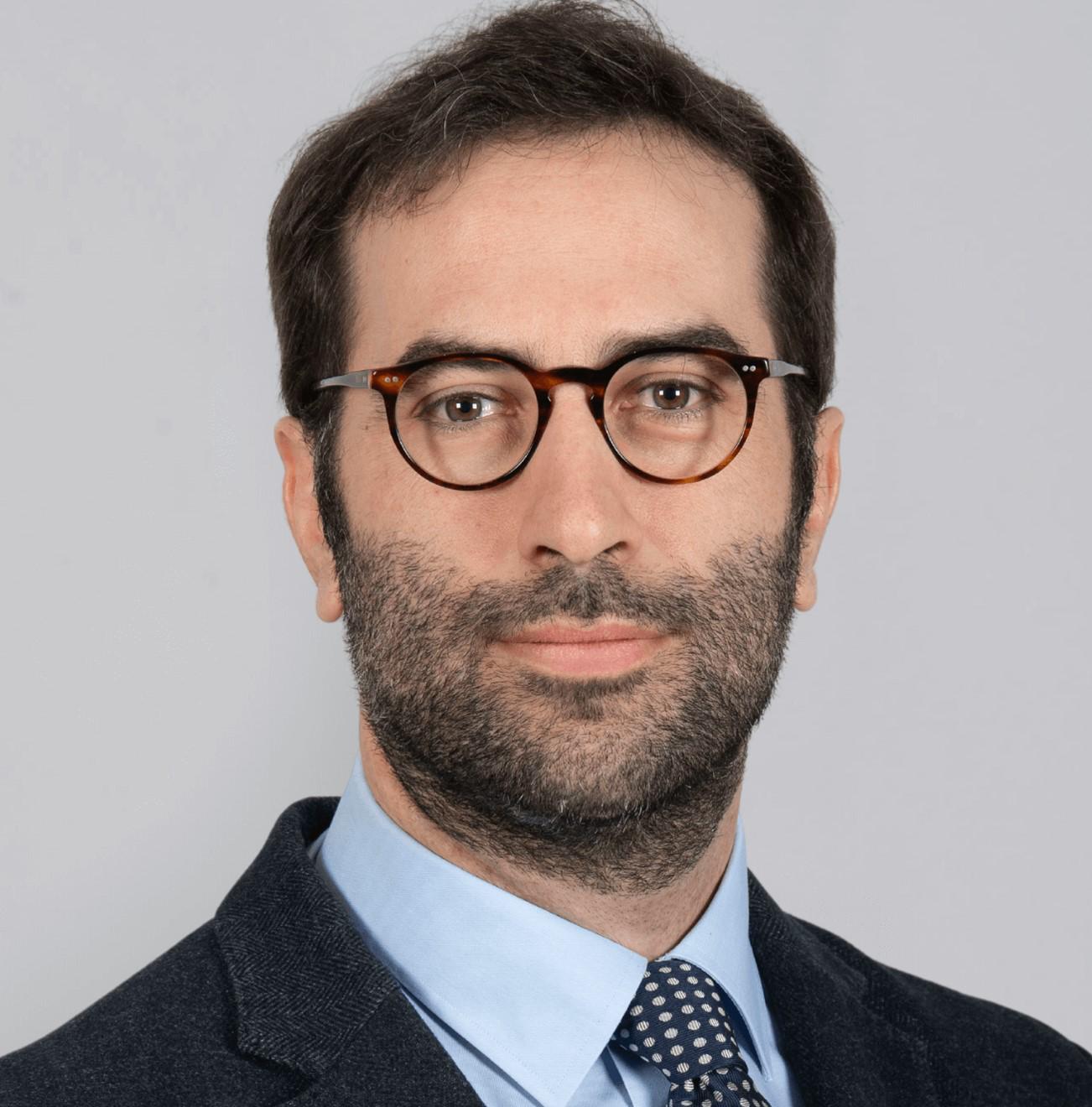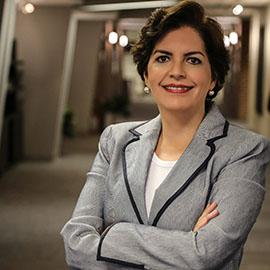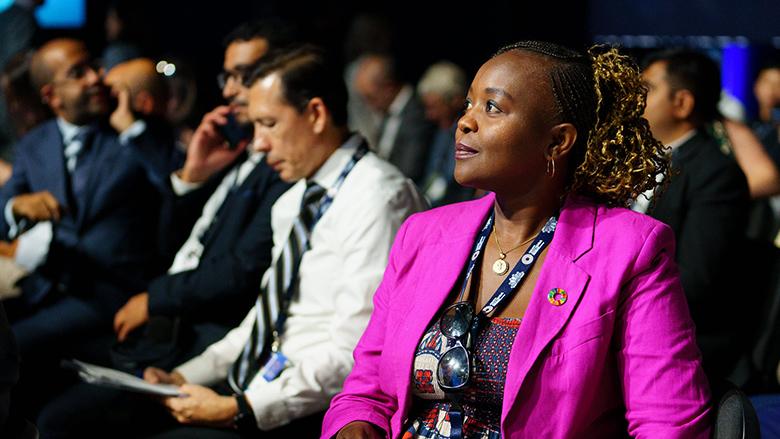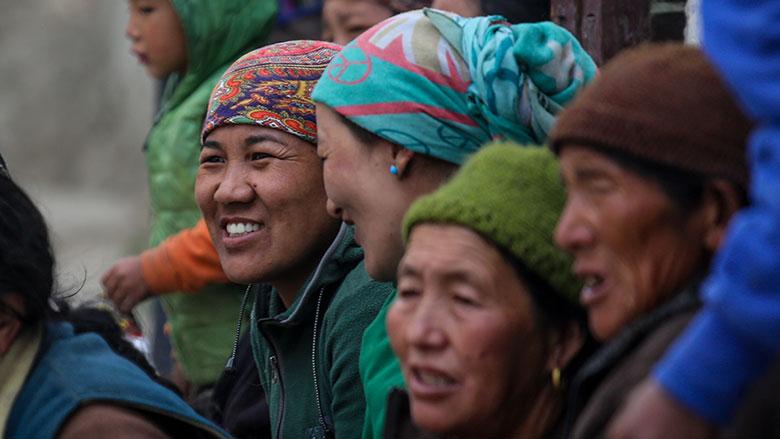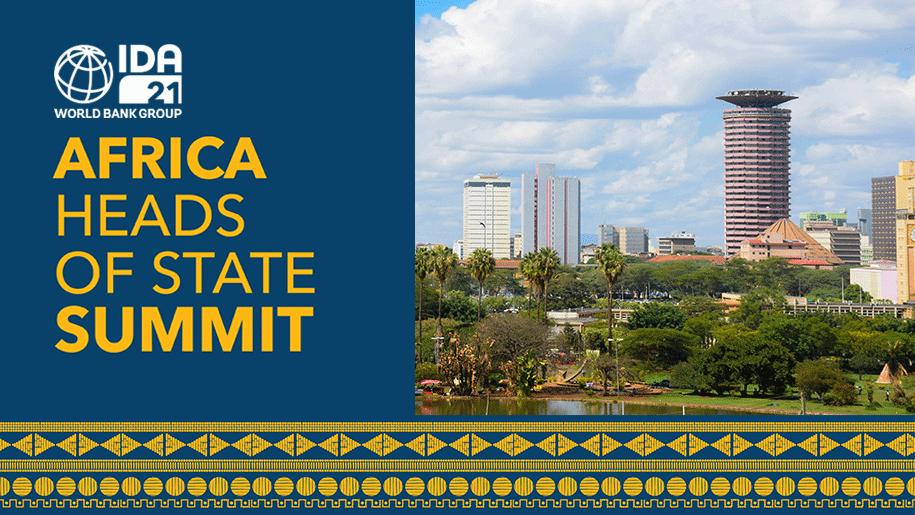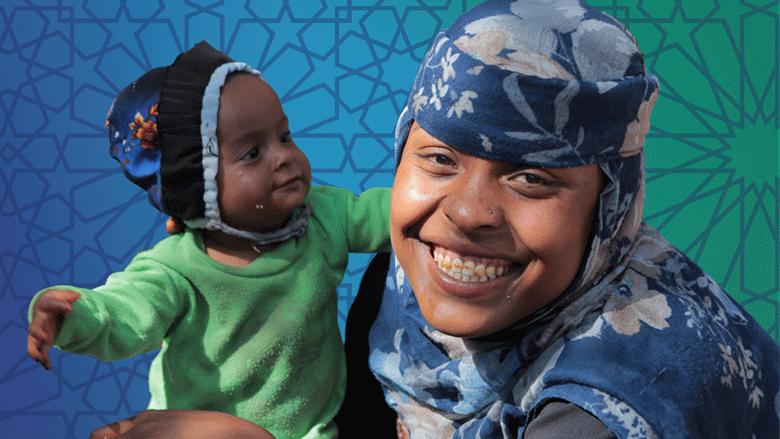[Alejandra Viveros] Good afternoon everybody. Thank you very much for joining us. I am Alejandra Viveros, the head of media here at the World Bank Group. I'm your moderator for this press briefing on Spain's financial commitment to the International Development Association, also known as IDA, which is the World Bank's fund for low-income countries. We have with us Spain's Minister of Economy, Trade and Business, Carlos Cuerpo and World Bank Group’s President Ajay Banga. They will give opening remarks and then I will turn to your questions. Let me invite Minister Cuerpo to the podium first. Minister.
[Carlos Cuerpo Caballero] Well, thank you very much. Dear Ajay. Good morning everyone. We've had some good news on the outlook for the world economy this week. Growth remains resilient and after some years of very gloomy predictions, we seem to be heading for a soft landing in our way ahead. But of course, huge challenges remain, especially for low-income countries. Many are actually still grappling with the scars left by the pandemic and also the energy crisis brought by Russia's war on Ukraine. More than half of the world's poorest countries are nearly already or already in debt distress. One in three of those countries, in fact, is now poorer than they were before COVID-19. Climate change, poverty and inequalities, adding to a still uncertain geopolitical landscape are a great call to action for all of us. We all have responsibilities, and we all need to help now more than ever. This is why I'm proud to announce that Spain will increase its contribution to the International Development Association, to IDA, up to 400 million euros over the next five years. A near 40% increase compared to our contribution in the previous IDA Replenishment. This contribution… [Applause]
[Carlos Cuerpo Caballero] Thank you. This contribution is nothing else but a testament to our unwavering commitment to multilateralism and also global development, and our trust, our full trust on IDA as a tool for change. Since its inception, IDA has been instrumental in fighting poverty and tackling development challenges due not only to its sheer size, but to the concessionality element which is key, providing this critical safety net for the world’s poorest and most vulnerable countries. Also, President Banga has a vision, the vision and the ambition of making of this Replenishment the largest of all time, for us to help in the eradication of poverty and fight climate change. Spain, of course, will do its part to help. We want to lead by example. Indeed, Spain is committed to help. We champion also another initiative together with the Bank and the Fund earlier this year, so that we had both institutions also cooperating in the framework to optimize the use of resources to tackle climate change and make it compatible with the fight towards development for these most vulnerable countries. In the end, and just in a nutshell, to conclude, I would like to call on donor countries to come together and make sure that we accomplish a successful and ambitious IDA21 Replenishment for the global economy to remain resilient and guarantee long-term peace, security and prosperity. We cannot afford to leave anyone behind. I'll make another announcement. We actually have a golden opportunity to give continuity to these efforts. As in Spain, we will be hosting the 4th International Financing for Development Conference from the UN in June 2025 in Sevilla. So we're inviting everyone to continue with these great efforts and, of course, the World Bank and Ajay will be a great contributor to the conference as well. Up to you, Ajay. Thank you.
[Alejandra Viveros] Thank you, Minister. Ajay.
[Ajay Banga] Carlos, thank you very much. And from the day you and I met first, a few, now a few months ago, you've been both a good partner, but also a really good representative and steward of what Spain is trying to do. And I appreciate everything that you do with us. Across the emerging markets that we commonly refer to as the Global South, as I've said a few times, they have vast natural resources, land, fertile land. They have a strong and growing entrepreneurial spirit. But unfortunately, the other side, a set of very well-defined challenges that very often eclipse these blessings. That's the backdrop against which this contribution of Spain's should be understood. We are at a crossroads and the path we choose will determine the future for generations to come. Do we accept the status quo, a future where millions remain trapped in poverty, where the fundamental human right of electricity remains elusive, where healthcare is inadequate and inaccessible, and where infrastructure is insufficient to support the potential of these countries? Or do we seize the opportunity to unlock the potential of these people in these places? The World Bank believes the answer is clear. Clearly Spain believes it too. We can and we must help to chart a course towards a brighter future. That's where IDA comes in. Over six decades, 36 countries have graduated from IDA. Many are now generous donors. They know three things. First is the power of IDA's concessional financing. Almost 30% of IDA is grants. The rest is deeply concessional. They need this. It is their lifeline. Second, they know the power of IDA's knowledge gained over the years, that is deployed to lift the capacity of other countries. And third, they understand, what Spain understands really well as well, which is every dollar you give us, every euro you give us, we can leverage three and a half to four times for IDA, which is a huge multiplier, which makes it just so much more efficient for countries. That's the reason why IDA has been able to deploy 270 billion over the past decade. It's the best deal in development. More than the funds we deploy are the benefits that people derive. Over the past decade, 900 million people have got access to healthcare. 117 million people have got access to electricity. 94 million people have got access to water. And 80 million farmers have got the chance to do better farming and better techniques and earn better money from their effort. And then it's a lifeline to those countries with debt. Carlos started by talking about the challenges in the world and the fact that he recognizes them. Debt is a big one. We are the ones who are there for liquidity, for concessional financing, and for climate objectives for them. So, Carlos, for you, this is not just a financial gesture. I believe this is about you, President Sanchez's vision, the two of you, and the meeting I had with him at UNGA, it set you both apart. Your leadership is an example. An example to think bigger and act faster. I think that's your commitment to the power of multilateralism. Spain is very focused on four topics, all of which are right in the center of IDA, like a bullseye. Debt, climate, food security, and gender. These are the four topics that matter to this country. These four topics happen to be among the most important things for IDA. I think the future of these developing countries and their people is not predetermined. It's a choice we are all making. And the choice that Spain is making is to help all of us find a way to get these countries to be able to see the real opportunity that people deserve. So, sir, thank you once again. Thank you for your friendship, but most importantly, thank you for your commitment and your leadership. Thank you all.
[Alejandra Viveros] Thank you. Ajay. Let me now open it up for questions from reporters. Any questions? Yes, go ahead. Please let us know your name and your media outlet.
[Mario Batista] Yes, my name is Mario Batista. I'm from the Portuguese news agency LUSA. I would like to ask, how much are you expecting for the donor countries to give to IDA or, to put the question in another way, what would be a success for this 21st Replenishment? Thank you.
[Ajay Banga] Thank you for asking me that. These are complicated times in fiscal terms in many countries. Exchange rates have changed, people have fiscal budgetary constraints. Everybody faces that. But like I said, it's a choice. And thus far, Denmark, now Spain, the UK is planning to make also a consistent and higher commitment, other Nordic countries are doing the same. I think the United States will be a very constructive supporter in this, and others too. There are others who are challenged. So like in every other IDA Replenishment, some will increase substantially. Some will be there, some will come down, and some new donors will also enter. Just now we were at the G20 Meeting and Brazil announced their return to IDA financing, which has not been the case for three or four IDAs that I can remember of. So I think we're in a mixed place here. I would hate to tell you what I think the number will be, but let me tell you this. Last IDA was 93 billion, which came from 24 billion of donor capital, like their commitment. And then the rest is the leverage that IDA is able to do. We would like at least to reach 105 billion in total because that gives us the chance to be able to be there for these countries. Remember, there's been inflation as well during this period. If we get past 105, that would be amazing. But if you get to 105, we can still be very good partners for the developing world.
[Alejandra Viveros] Any other questions? Yes. Your name and outlet, please.
[Andy Robinson] Andy Robinson, La Vanguardia newspaper in Barcelona. I'd like to ask Minister Cuerpo: There’s a huge controversy in Europe at the moment about immigration and what seems to be the only proposals that are coming forward are to increase lifting barriers to people forced from their countries in Africa and other developing countries. The question I wanted to ask you is if you think that this kind of initiative may actually be a more humane way of tackling the problem of forced migration from the developing countries to Europe.
[Carlos Cuerpo Caballero] Well, thanks a lot for the question. Maybe Ajay wants to chip in as well. But I have a very clear message for Spain. Over the past few years, migration has been a main determinant of growth. The contribution of migrants to growth, to fiscal sustainability, has been very clear and very significant. And that's the starting point for us in terms of how we perceive migration. We have to run away from this decoupling between the reality and perceptions in social media and disinformation. The contribution of migration to Spain is substantial. We want to continue to foster a positive contribution from migration. And on this, of course, IDA and the multilateral world is one way forward. But it's also a bilateral effort that we're undertaking from Spain, also with the help of the World Bank, with a specific initiative for Western Africa, where we are fostering actually development locally to have opportunities and jobs for the youth in those countries so that there is no push factor away from their countries and they can have those opportunities at home. And if they want to enter in regular flows to actually visit, stay and work in Spain, that can be through these regular and stable channels.
[Ajay Banga] And the only thing I'd add to that, because as always, he's got covered all the correct points. My view is that it's in our own interest to help countries develop and get opportunities for their young people where they live and work. Nobody migrates and takes the risk of migration unless they believe that at the other end is an opportunity much better than what they're leaving behind. What Carlos is talking about is it's in our own self interest to enable those countries to grow and develop so that people can enjoy their space and have a good life there. At the same time, it benefits all of us. Our companies, our intellectual properties, our opportunities for growth and development are also driven by that economic growth in those countries. Go back over the last 30 years. The growth of China, India, Indonesia, Mexico, Türkiye, all these countries have benefited the developed world as well. We're kind of in this together and I think that's the real point.
[Alejandra Viveros] We have time for one last question. Okay then. Thank you very much for joining us. Have a good rest of the day and thank you.
[Ajay Banga] Thank you.
[Alejandra Viveros] Muchas gracias y buenas tardes.


